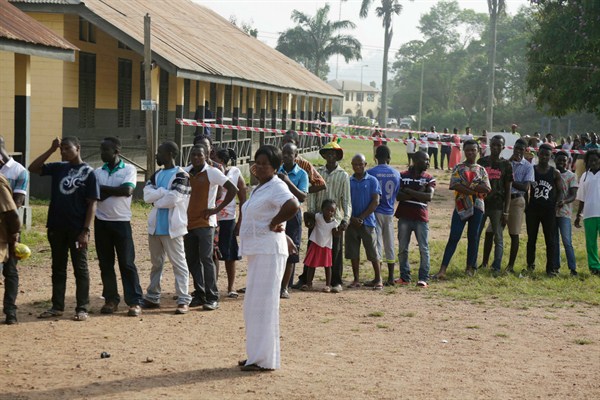On Jan. 7, opposition leader Nana Akufo-Addo took office as the president of Ghana, a month after defeating incumbent President John Mahama in a smooth presidential election that again boosted Ghana’s democratic reputation. December’s vote represented an exception at a time of electoral and political turmoil in other parts of Africa, most recently in nearby Gambia.
Akufo-Addo’s successful campaign had many features, but the most notable was his populist message. It now remains to be seen whether “the farmer who struggles to feed his family,” “the mother of the sick child,” and those “who . . . are forced to sleep on the streets of our cities”—all lines from the manifesto of Akufo-Addo’s centrist New Patriotic Party, or NPP—will truly benefit from his presidency.
Since the advent of multiparty democracy in Ghana in 1992 and especially since 1996, Ghanaian elections have essentially been a two-party contest between the left-leaning National Democratic Congress, or NDC, and the NPP. The system is competitive: The NDC and NPP have ousted each other from power twice now.

